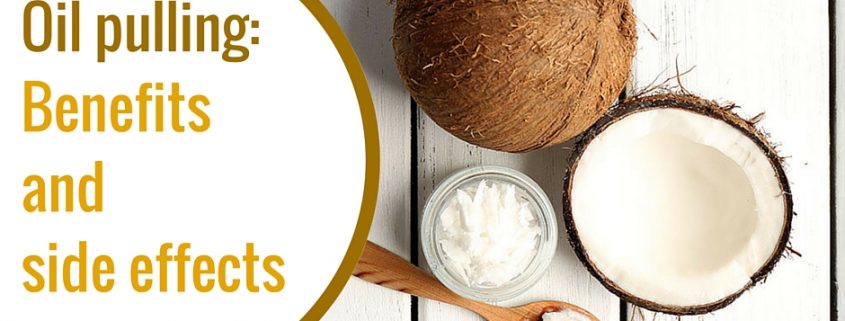Oil pulling: Benefits and side effects

The benefits of oil pulling
Although the American Dental Association holds that due to a lack of evidence, they recommend you do not replace your normal oral hygiene routine with oil pulling, you can still add it to your existing routine and reap the benefits. A 2011 study determined that oil pulling is just as effective as an antimicrobial mouth rinse called chlorhexidine. When done correctly (depending on the oil used), oil pulling can:
- Kill the bacterium responsible for tooth decay (streptococcus mutans)
- Reduce plaque
- Prevent gum disease
- Kill other harmful microbes, like viruses or yeasts
- Help with bad breath
- Whiten teeth
- Detoxify the body
If you do choose to start oil pulling, remember that these are still oils. Coconut oil actually solidifies at room temperature! So instead of spitting it down the drain, spit it out into a trash can. That way you avoid clogging any of your drains.
The risks of oil pulling
As beneficial as oil pulling is, there are some risks associated with it. The biggest one lies with replacing brushing with oil pulling. While oil pulling does reduce plaque, it does not eliminate it entirely. You still have to remove plaque and food buildup manually, with a toothbrush. Another factor you should consider is that many of the oils marketed as specific “oil-pulling” oils are not food-grade. Therefore, they may contain harmful additives – since they aren’t up to the rigorous testing standards of actual food-grade oil.
Adding oil pulling to your dental routine, as long as you choose a reputable, food-grade oil, in the very least, will reduce the number of microbes and plaque in your mouth. And it’s never a bad thing to have less bacteria in your mouth! Have additional questions? Give Dr. Chauvin’s office a call.



